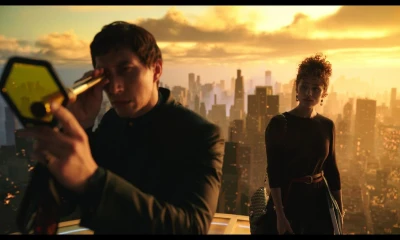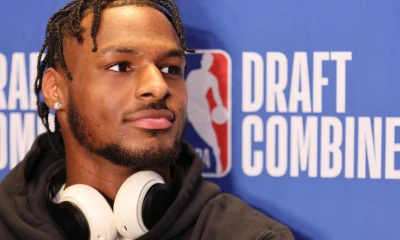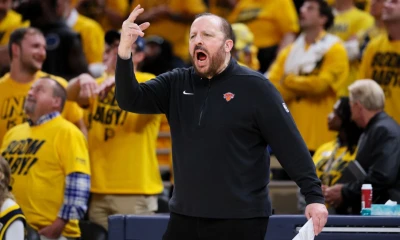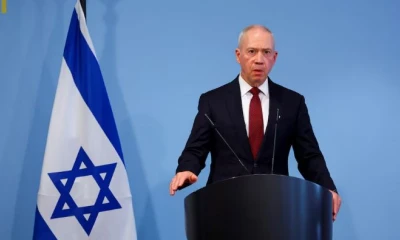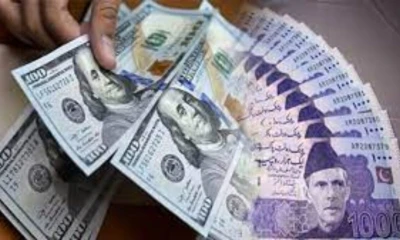Sports
Playing with LeBron 'not my mindset,' Bronny says
Speaking to reporters at the NBA Combine in Chicago Tuesday, Bronny James, addressing the notion of playing with his father, LeBron James, said "that's not my mindset or not at all. I'm just trying to put in the work and see where it takes me from there."
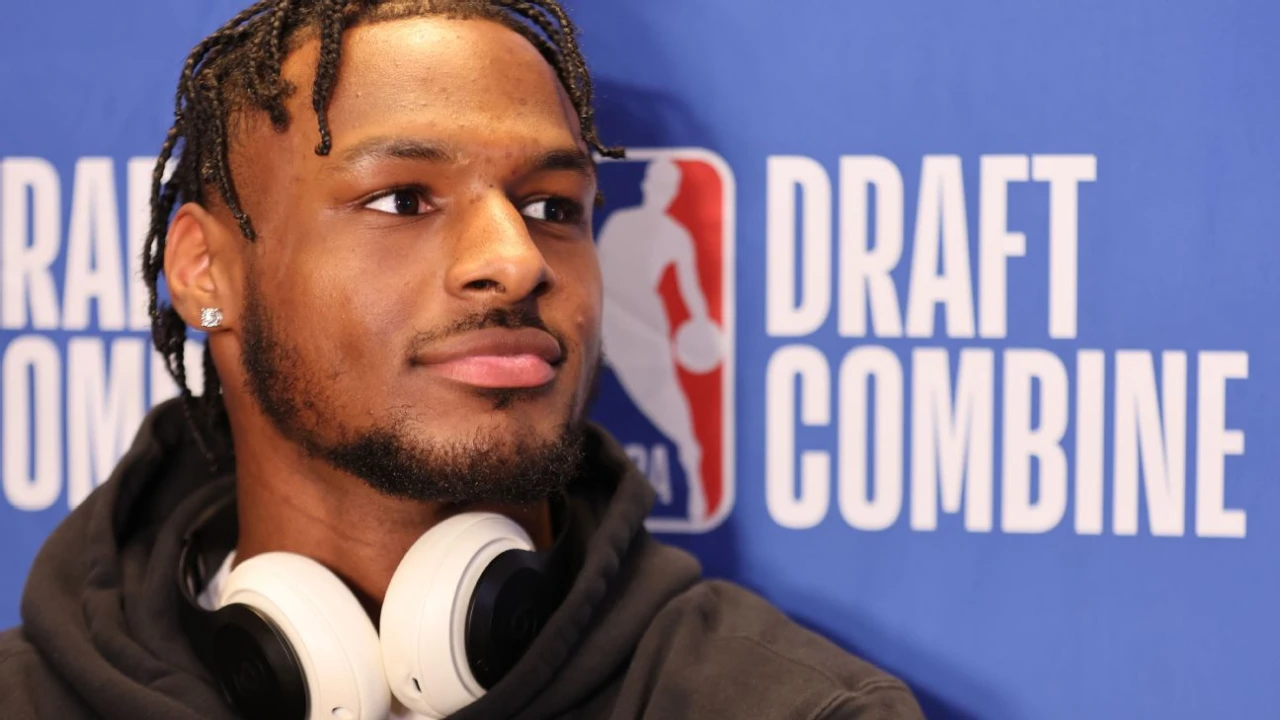
Yet, the 19-year-old USC guard reiterated that his goal is simply to play in the NBA, not necessarily on the same team as his father.
"I would be happy about getting to the league instead of me thinking about playing with my dad," Bronny James said. "That's not my mindset or not at all. I'm just trying to put in the work and see where it takes me from there."
LeBron James, who at age 39 completed his 21st NBA season in 2023-24, has repeatedly expressed a desire to team with his son before his career ends, even though he said following the end of the Lakers' season that he "hadn't given it much thought lately."
Bronny James did not grant interviews during his freshman season at USC, a decision he said was made by his advisors. Addressing the media Tuesday was one of his first opportunities to state his future goals, and he sought to create some distance between himself and his father.
He also shot down comparisons to lead initiators of offense around the NBA and instead compared his game to players such as the Boston Celtics' Jrue Holiday and Derrick White or the Sacramento Kings' Davion Mitchell for the way they influence winning by exceling in their roles.
"Bronny was just a nickname that I was just given when I was younger," James said. "But everything that follows my dad, people just try to link me with that and all the greatness that he's achieved. I haven't done anything yet, so I feel like there needs to be that divide between Bronny and LeBron.
"Everyone's heard this before. I just want to have people know my name is Bronny James and not being identified as just LeBron James' son. I feel like that would great."
James got a chance to start separating himself at the combine, after being cleared to participate this week by an NBA panel following a cardiac arrest and procedure to repair a congenital heart defect nine months ago.
James participated in a scrimmage with other draft prospects Tuesday, scoring four points (shooting 2-for-8 on field goals) and grabbing four rebounds in 19 minutes. It did not maintain the momentum James had built following a strong showing on the opening night of the combine, which included knocking down 19 of 25 shots from 3 and recording a 40-inch vertical.
"My job is just to play a role and play the right way, make sure I get my teammates involved and stuff like that," James said. "But again, I was just super grateful for the opportunity to be out there. I felt like I should be out there."
James used the word "grateful" several times throughout his media session Tuesday, emphasizing that he was appreciative to be on the court considering there was a time after his diagnosis when he was not sure whether he would play again.
"It was a tough time for sure," James said. "But all this work that I've put in, it just really built me into someone that would never give up, and it paid off. I put in the work after that situation, and I'm back to where I want to be."
James acknowledged the heart issues had an effect on his freshman season at USC when he averaged 4.8 points, 2.8 rebounds and 2.1 assists. Although he has been cleared to play, James said he is still getting over some lingering doubt from the aftermath of the issue.
"I feel like my parents were a big factor of believing in me and giving me the love and affection that I needed at that time," he said. "I still think about everything that could happen, but I just love the game so much that it just overpowers me."
James has declared for the June 26-27 draft while maintaining his college eligibility and has until May 29 to decide whether to stay in the draft or return to college, where he has decided to explore the transfer portal.
James said he would take time to weigh his options before making the final decision.
"A lot of thought, a lot of alone time by myself and thinking about where I want to be and where my heart wants me to be," James said.
Sports
Brady has roast regrets due to impact on his kids
Tom Brady said he regretted how his recent live comedy roast on Netflix affected his kids, saying he realized, "I wouldn't do that again."
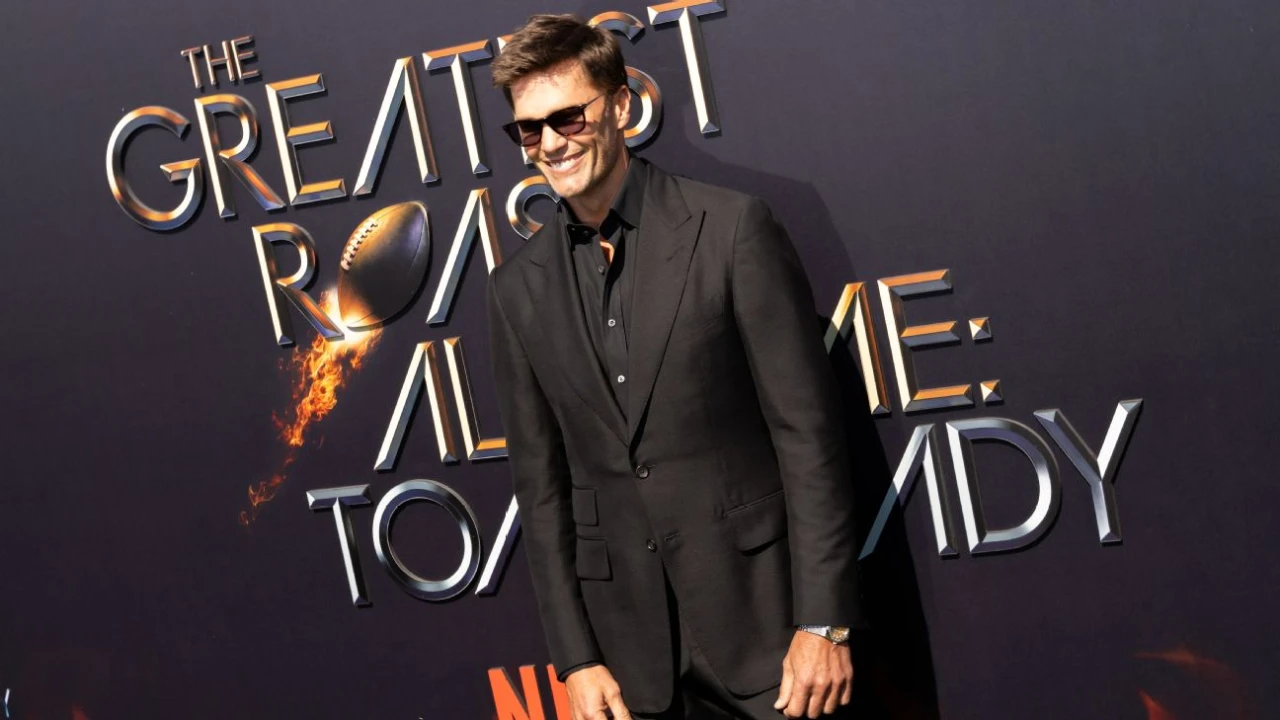
"I loved when the jokes were about me," Brady said Tuesday on "The Pivot" podcast with Ryan Clark, Fred Taylor and Channing Crowder. "I thought they were so fun. I didn't like the way it affected my kids.
"So it's the hardest part; the bittersweet aspect of when you do something that you think is one way and all of a sudden you realize 'I wouldn't do that again' because of the way it affected, actually, the people I care about the most in the world."
Brady's comments came at the end of the 56-minute podcast, when he was asked by Taylor -- his teammate with the New England Patriots in 2009 and 2010 -- if he learned anything about himself from the roast.
Taylor's question was delivered more in the context of his connection with teammates and how it seemed to reflect their bonds formed in the locker room over years, but Brady instead focused on his children Jack, Benjamin and Vivian.
"It makes you, in some ways, a better parent going through it," he said. "Sometimes you are naïve. You don't know, or you get a little like, 'Oh s---.'
"I love when people were making fun of me. ... I just want to laugh, so I wanted to do the roast. You just don't see the full picture all the time. So I think it's a good lesson for me as a parent. I'm going to be a better parent as I go forward because of it."
Brady added: "At the same time, I'm happy everyone who was there had a lot of fun. And I do think for me, outside of that, it always is good 'if we're not laughing about things, we're crying.' I think we should have more fun. We loved laughing in the locker room. Let's do more of that and love each other and celebrate other people's success. That, to me, gives everyone a lot of hope."
Part of the podcast focused on how May is Mental Health Awareness month, with Brady acknowledging how he is doing in that area.
"I'm just doing my best to check in with myself as often as possible -- with my physical health, my mental health, my emotional health," he said. "It's something I'm working on. Every year I think I start something a little different.
"I think this last year I wanted to kind of rebuild my body because I lost a lot of weight in my last season. It was challenging. This year is a lot of work stuff. I think next year I'm really going to settle in to a better, more sustainable rhythm to life between all of our responsibilities. When is it too much? When is it not enough? You're juggling all these balls in the air, and certainly for former athletes, we never know how it's going to go when we retire."
Brady revealed another aspect of retirement that has challenged him.
"Sometimes I feel like I'm a little bit in a washing machine right now, not quite sure where you're going, what the schedule looks like. The structure, the habits, are positive for us at different times; when you don't have that, you bounce around - you're like a ping-pong ball, too," he said, acknowledging he is "not really in my center right now."
"I feel like, naturally as a quarterback, I was in control. I loved flying the plane, being the operator. I think what you realize in life is that you're not in control that much. What do I need to do more in my life? I need to be better with less control. I need to be better operating in that gray area. I can't be so anxious when things aren't going exactly the way that I want."
Sports
Tom Thibodeau finally found common cause with Knicks. Will it be enough?
New York has stunned foes with ferocity that mimics its coach's mindset. But will fatigue finally catch up?

Trust the pass, he tells them, and so they do. Fight like hell, he tells them, and so they do. Get better every day, he tells them, and so they do.
Three or four of them play the entire game, or close to it, and that's just the way it has to be. Thibodeau, who has been criticized his entire career for the workload he demands of his stars, finally finds himself with no choice. Maybe his whole career, through head-coaching gigs with three teams over 12 seasons, has been leading to this very moment: His guys either play -- and play, and play -- or the Knicks lose. The math is pretty simple.
There's Jalen Brunson, the world's smallest giant, and the indefatigable and ridiculous (in a good way, mostly) Josh Hart, and Donte DiVincenzo, all loose-limbed confidence. There is, or was, the smooth and versatile OG Anunoby, whose hamstring injury in Game 2 sidelined him for the next two games and potentially the entire series.
The first four games of the Eastern Conference semifinals against the Indiana Pacers, with the Knicks winning the first two and the Pacers the next two, show how quickly Thibodeau's freedom turned into confinement. He might be able to get away with running the same guys out there minute after minute in game after game, but they have to be the right guys. The Knicks were 31-5 with Anunoby on the court this season; his injury changed everything.
The rotation is really no rotation at all, no more than a quarter-turn before it snaps back in place. Julius Randle was injured during the season, and three more of the top eight -- Bojan Bogdanovic, backup center Mitchell Robinson and Anunoby -- have gone down in the playoffs. The situation, once dire, is now absurd. It all seems like the perfect convergence of coach and team, as if Thibodeau sent a signal out into the universe and these are the ones who responded.
Hart played 48 minutes in four straight playoff games before Game 3 in Indiana, a stretch that amounted to 192 straight minutes of game time. He is the first player to do that in the postseason since Chicago's Jimmy Butler -- coached by you-know-who -- did it in 2013. When Brunson missed most of the first half in Game 2 against the Pacers and ended up playing 32 minutes, it must have felt like a day off. DiVincenzo routinely plays 44 to 48 minutes, and Isaiah Hartenstein logged 39 in the first game without Robinson. Joakim Noah, who played -- and played, and played -- for Thibodeau with the Bulls, once expressed his admiration for his coach while famously adding, "But he doesn't understand the rest thing."
Here, at this point in the postseason, with this roster, Thibodeau doesn't have to understand it. He doesn't even have to acknowledge it. "The rest thing," such as it was, no longer exists. Thibodeau is down to five players, maybe six, and he just might win a title with Hartenstein as his only healthy center.
Thibodeau's reaction whenever the topic of workload is invoked is to either deflect or ignore. He shrugs and says everyone has a seven- to eight-man rotation in the playoffs, so his team just falls a bit below the average. Before Game 1 against the Pacers, I asked him how his players were embracing the heavy minutes. "They can do better," he said. He immediately looked around the room, scanning faces, as if to make sure the joke landed. In his world, they -- and he -- can always do better. He has an overlooked sense of humor that's not so much dry as brittle, like a lit match tossed onto dried leaves.
The Knicks have reached this point by a unique, and uniquely odd, style. The pace is relatively slow but frantic, five guys storming the court from the opening tip to the final buzzer. They beat opponents to rebounds and loose balls not through athleticism, though there's plenty of that, but by sheer desire. There's something almost pathological about the way they keep rebounds alive by batting them all over the court. Every loose ball is attacked as if they're unclear when a play is supposed to be over. This far into it, 10 games into the Knicks' postseason, the Pacers now and the Philadelphia 76ers before them seem routinely surprised at the ferocity of the Knicks' effort.
It has to be said: The idea of a team taking on the personality or mentality of its coach is both patronizing and patriarchal. Nobody would suggest Brunson, Hart and DiVincenzo acquired their tenacity and fitness levels only after hanging out with Thibs; more likely, in him they found someone more than willing to identify, accommodate and -- most importantly -- understand their common belief: Sticks bound together are strong; by themselves, they break easily.
"To us, it's more about being so competitive we don't want to come out of the game," Hart said, and Brunson put it like this: "There is no quote-unquote burden."
After the Knicks clinched their first-round series with a Game 6 win at Philadelphia, Thibodeau was asked whether he had considered taking out Hart. "It was a passing thought," he said, pausing for effect, "and I let it pass."
Hart sat at his locker after 48 more minutes in the Game 1 win over the Pacers. He is engaging and funny and slightly off-kilter in the manner of someone who plays a spring-loaded 48 minutes per game and has a two-box-a-day Mike and Ike habit. He seemed anything but tired, and as he spoke, backup center Mitchell Robinson dragged his left leg out of the locker room behind the rest of his body, a day before his ankle injury ruled him out for the rest of the postseason. Nobody seemed to notice.
On a shelf near Hart's right shoulder was a tall can of a high-octane energy drink, and next to his left hip was a plastic bottle of a liquid with SLEEP screaming from its label. Metaphors rarely arrive so neatly packaged: the yin and yang of the Thibodeau experience.
THERE ARE THINGS you notice about Thibodeau when you watch him closely. For one, he doesn't clap. Like, ever. In basketball, everyone claps -- but not Thibodeau. He doesn't clap to congratulate or condemn, exhort or mock. He doesn't clap in frustration, anger or happiness.
Instead, he watches the game from near half court, in this series about 15 feet from the Pacers' Rick Carlisle, whose own clapping -- in the face of referee Marc Davis -- led to his ejection in Game 2. Thibodeau stands with his arms folded across his chest, body slightly stooped, mouth slightly open, eyes squinting like a man trying to spot a tiny bird in a big tree. His thinning hair resides above a beard that looks forever half-hearted. There is almost always a set of rolled or folded papers in one hand, and more sticking out of his pants pockets. His arms fall to his sides when something does not go his way; they stay folded when it does. In times of distress -- and there are many -- he raises his arms up past his shoulders, crucifixion-style. His body is highly fluent in frustration.
He doesn't clap because his investment is not emotional. It's an intellectual investment, and clapping for a good play gets in the way of preparing for the next one. He doesn't watch the game; he assesses it, as if there's something out there only he can see, something small and hidden and potentially vital. It's out there somewhere, it has to be, or why else would he have devoted all the time and energy -- a life's worth of both -- to making sure he was the only one who could see it?
Another thing you notice when you watch Thibodeau closely is that he doesn't partake in the ritualistic gathering of coaches at the beginning of every timeout. A timeout is called, and Thibodeau immediately heads to the bench, where a chair has been set out and a dry-erase board awaits his marker. The message it sends is one of certainty and assuredness; he has put in the advance work, doesn't have any questions and isn't particularly interested in outside advice. He has drawn up eight plays and adjusted the Knicks' pick-and-roll defense before Carlisle even begins addressing his players, and he's still at it long after the Pacers have retaken the court.
"I would say he's one of the most prepared coaches," DiVincenzo said. "That's not a shot at any other coach, but Thibs is on a whole 'nother level. He knows every single movement they're going to do, every single adjustment they're going to make. We go through it all, and being the more prepared team makes you more confident, and when you're more confident, you play more loose."
That looseness helps mitigate the number of minutes his guys have to play. Preparation and confidence can make it a lot easier to ignore fatigue, or not feel it at all. Players who are unsure of what's coming next tend to sag and tire sooner than those who know what to expect in nearly every situation. And it's obvious from how Thibs runs a game that he knows the demands he puts on his players. He staggers his timeouts to give his guys rest; in Game 2 against the Pacers, he called a timeout immediately after a lengthy delay caused by an Indiana challenge, buying the Knicks more than five minutes of downtime.
"The way he runs a game," DiVincenzo said, "you kind of forget the minutes sometimes."
One thing you notice when you listen to Thibodeau closely is the intricate level of detail he provides. It's easy to miss amid the half-mumbled fragments delivered quickly and without inflection, but every answer -- even in the antiseptic confines of an interview room -- is a trip to the classroom. He refuses to dumb it down. Catch up, or get left behind.
He called Pacers point guard Tyrese Haliburton "an offense unto himself." On the topic of Myles Turner and the proliferation of 5s who can shoot outside, he said, "Every team has at least one center who can play away from the basket. That opens up the floor. The skill level of the bigs is dramatically improved. They're shooting 3s, putting the ball on the floor. A lot of offenses are inverted so you have to be able to guard. That's why individual fundamental defense is so important." Asked about how he attacks an opponent's defense, he said, "The game tells you what to do. What can we get from this? If you're going to put two on Jalen, all right -- that opens up offensive rebounding, and that's one of our strengths. If you're being double-teamed, don't fight it. Hit the open man, and that means we have an advantage on the backside, and oftentimes that's how guys get going."
And yet there's an outward weariness to the man, as if he has seen it all in his 66 years and can't believe he's being forced to see it again. His office opens onto the practice court at the team facility in Westchester County, and Hartenstein said he has never seen the light go off. "He's here before the first guy gets here," Hartenstein said, "and he's here after the last guy leaves." He peers into the screen and searches for the smallest advantage, a tell here or a tendency there. He wants to know who wants the ball late in the game and who doesn't, who tends to short-arm their free throws when it counts most, who overplays everything hoping to be a hero. He's not so much a coach as a basketball detective, rolling every permutation of every permutation through his brain until it makes sense.
"He's not who I thought he was going to be," Hartenstein said. "I thought we were going to be practicing a lot more and doing more physical stuff. We're not practicing crazy like a lot of people think we are. It's just a lot of preparation and mental stuff. We're not playing fives and running suicides. That's what I thought we were going to do, but we don't."
Thibodeau seems to think he has exactly his kind of team, one that'll keep winning or collapse in the effort. There's nobility in both. His players have shown they'll run through a wall for him, and for themselves. The trick is knowing when to put it in front of them.
THE LEGEND OF Thibodeau -- then known as Tibby -- at Salem State University in Massachusetts goes something like this: He came to school as a shooter, someone unafraid to cast from the longest of distances, until a broken wrist his sophomore season altered his release and took away his outside game. Some of his teammates say he was a good shooter, while others say he merely liked to shoot. One of his teammates, in a nudge-nudge way that he asked not be attributed to him, told me he never saw the defensive wizardry in Thibs the player that has come to define Thibs the coach.
Regardless, the broken wrist triggered some self-reflection, and Tibby's solution was to hit the weight room and pretty much stay there. He got stronger to compensate for his lost shooting touch and transformed himself into a 6-foot-1 -- "on his best day," said ex-teammate Ken Kocher -- power forward. When he wasn't lifting, he was in the gym, working on post moves and footwork; his up-and-under moves and pump fakes were famous within the team. "He was doing upfakes and drop-steps before anybody else," Dennis Grube, one of his teammates as well as his roommate, said. "Strong as a bull, and he could make shots underneath that you never believed he could." He'd use the basket to shield himself from taller defenders, and he had a knack for spinning the ball wildly off the backboard and into the hoop.
He'd fight, too, on the court or off. He was the only player anyone could remember from the late 1970s who wore a mouthguard. "It was like he was going to battle, going to war," Kocher said. Tibby would go out with his teammates on the weekends, and more than once the night ended with punches. "He was a street-tough kid from New Britain, Connecticut," Kocher says. "Someone would get mouthy, and pretty soon Tibby would be in a fight. A lot of times he was defending guys, and a lot of times he was just not backing down from a confrontation. That's just who he was."
Thibodeau finished playing at Salem State and became an assistant coach there the next year. His devotion was total. He attended every clinic he could find and began compiling a vast library of tape that he studied day and night. He broke off an engagement to a woman named Debbie two months before the wedding, telling the Salem State athletic director he had decided he couldn't pursue his basketball dreams with the requisite devotion and also be married. (The New York Times reported that Thibodeau's mother made him return the wedding gifts). On days off, he observed the practices of Jim Calhoun (Northeastern) and Rick Pitino (Boston University). In 1983, he bought what Grube termed a "beat-up old Ford" and drove it to the Final Four in Albuquerque, New Mexico, to meet coaches and network the hotel lobby. At 25, after three years as an assistant, he became the head coach at Salem State.
Thibodeau coached his former teammates -- and Grube, his roommate -- during his first few years as an assistant. The transition from player to coach, for better or worse, was seamless. He quickly drew a line between friendship and his coaching career; friendship existed off the court, never on. He developed something called the "footfire drill" -- a series of lateral defensive slides, sometimes lasting 90 seconds at a time, with a direction change on every whistle -- that was named for the feeling it created in the players' feet.
"No, he didn't have an issue distinguishing himself as a coach," Grube said with a sharp laugh. "We were living in the same room -- he was my roommate and friend and the coach that I sometimes didn't care for. Those were some trying times."
Thibodeau sought out advice and scribbled down plays and expected everyone to love it as much as he did. It was collaborative; his players put in the work knowing he did, too. "If you have trouble having to earn your spot, if you have trouble being in the gym, if you have trouble loving the game, he might not be for you," said Paul Biancardi, an ESPN basketball recruiting expert who played for Thibodeau at Salem State and went on to become the head coach at Wright State. "But if you stay with him long enough, the results are going to show themselves."
(Grube said the Tibby he knew as a teammate, roommate and coach is exactly the kind of guy who wouldn't think twice about playing his guys 48 minutes per game. "I know what he's thinking," Grube said. "I'd play the whole damned game, so why wouldn't you?")
Salem State launched the itinerant life of the striving coach: with assistant gigs at Harvard and in the NBA with the Timberwolves, Spurs, 76ers, Knicks, Rockets and Celtics before becoming head coach of the Bulls. During Thibodeau's stint with the Knicks in the late 1990s, the team acquired late-stage Larry Johnson. Wracked with back problems that had stripped away much of his explosiveness. Johnson was forced to adapt, to become someone whose game could take a new direction. For each of Johnson's five years in New York, Kocher saw his old friend Tibby in Johnson, of all people, as he relied on guile, flustering bigger opponents by ducking, faking and pivoting on legs that could no longer jump.
"I swear to God," Kocher said, "I was watching Larry Johnson doing Tibby's spin moves."
KOCHER SENT ME a photograph of Thibodeau taken during a team outing to Marblehead Beach during his playing days at Salem State. He is lying in the sand, propped on his elbows, looking over his right shoulder at the camera. His hair is dark and curly, the muscles on his shoulders like softballs.
"He was built like an Adonis," Grube said, "and he looked really good in a tux in my wedding. He knew he looked good; he spent a lot of time looking at himself in the mirror."
Hart sat at his locker before Game 1 against the Pacers, talking with me about Thibodeau. Their relationship is unique. Hart is the ebullient irritant, the happy scold whose chiding can often cross the line. It is remarkable how similarly Hart's teammates and Thibodeau's former teammates describe the two men: tough, unyielding, loyal, at times caustic, the kind of guys you love as a teammate and hate as an opponent, each promising all the trouble you can handle. Something Hart said prompted me to ask him if he'd ever seen a photo of Thibodeau in college.
"No," Hart said, "only photos of him since he got to the NBA."
I held out the beach photo. He stared at it for a solid three or four seconds, as if trying to square the man on the screen with the man in the room down the hall. Finally, he said, "Oh. My. God." He quickly grabs his phone and snaps his own photo to show his teammates and, more importantly, Thibodeau himself. "Oh, you know that's what I'm doing," he said.
In here, Thibs is not the man who wins every poll of players asked to name the coach they'd least like to play for. In here, he is more of a sitcom dad -- grumpiness and contrarianism are central to the role -- whose crotchety exterior is becoming easier and easier to crack.
"We're working on him," Hart said. "We're working to soften that heart up a little bit. I see Thibs smile a lot of times now and make jokes, sometimes even during practice. I'd have to say we're getting there."
Thibodeau's college friends talk a lot about the sacrifices he has made, what he has kept out of his life to clear space for this one thing. They tell him to take more time off, relax, let people see more than the peering eyes and the upraised arms. He has accomplished a lot, and they wonder whether he will ever allow himself to enjoy it. There is family back in Connecticut, nieces and nephews, but there is no family to go home to after a tough loss. There is only the next play, the next game, the next season. I ask Grube, Thibodeau's former roommate, whether he thinks his friend sacrificed too much, whether he ever wonders if there might be a sadness, even a hole, in the middle of all that success.
"That's a tough one," Grube said after a long pause. "In a way, with this current group, I think he may look at them as his family -- his kids -- and try to do everything he can to make them succeed."
Day and night, the light in the office next to the practice court remains on, Thibodeau leaning toward the screen. He has given himself over to the game, looking for the smallest edge, believing it exists out there in that jumble of painted lines and tangled bodies. All he has to do is look long enough, and hard enough, and it will make itself known. His job is to make certain he's there when it does.
-
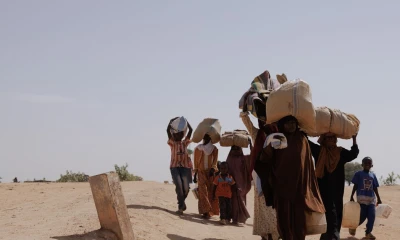
 Regional 23 hours ago
Regional 23 hours agoArmed groups are likely committing ethnic cleansings and atrocities in Darfur — again
-

 Pakistan 2 days ago
Pakistan 2 days agoFormer Punjab CM Manzoor Wattoo joins PPP with family
-

 Business 2 days ago
Business 2 days agoGold price low by Rs1200 per tola in Pakistan
-
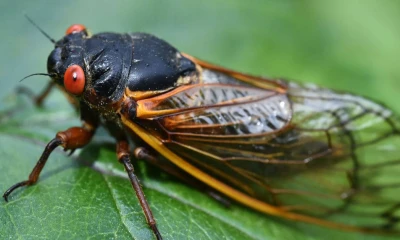
 Regional 23 hours ago
Regional 23 hours ago8 surprising reasons to stop hating cicadas and start worshipping them
-
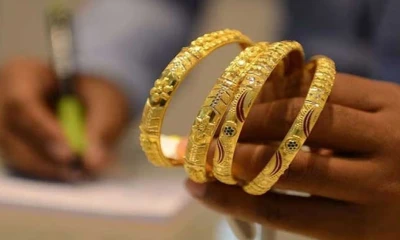
 Business 1 day ago
Business 1 day agoGold price again declines by Rs1,200 per tola
-
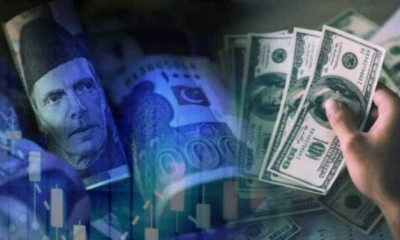
 Business 1 day ago
Business 1 day agoDollar falls against Pak Rupee in interbank, open market
-
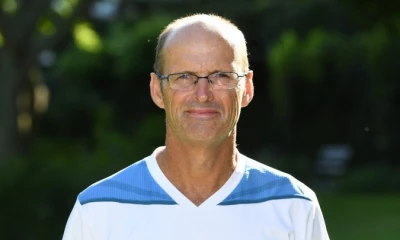
 Sports 1 day ago
Sports 1 day agoKirsten to join Pakistan team ahead of England series
-
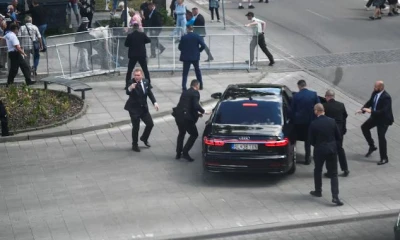
 World 11 hours ago
World 11 hours agoSlovakia PM Fico shot and wounded, TASR agency reports









